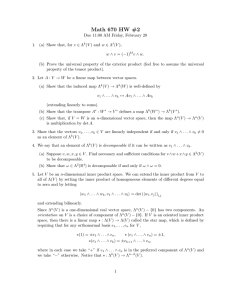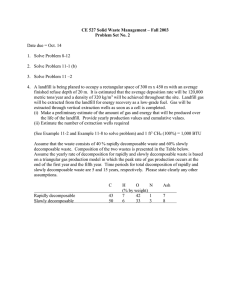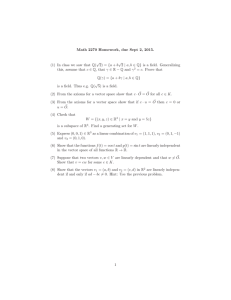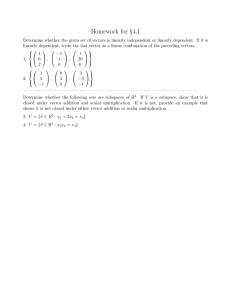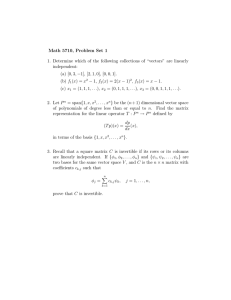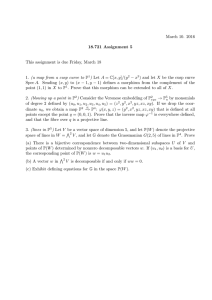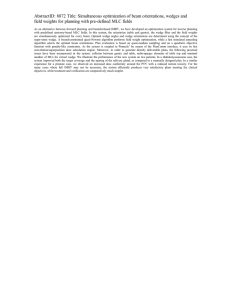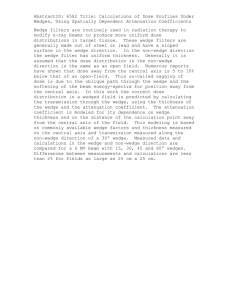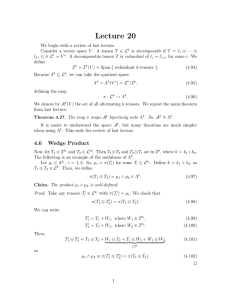Math 8250 HW #2
advertisement
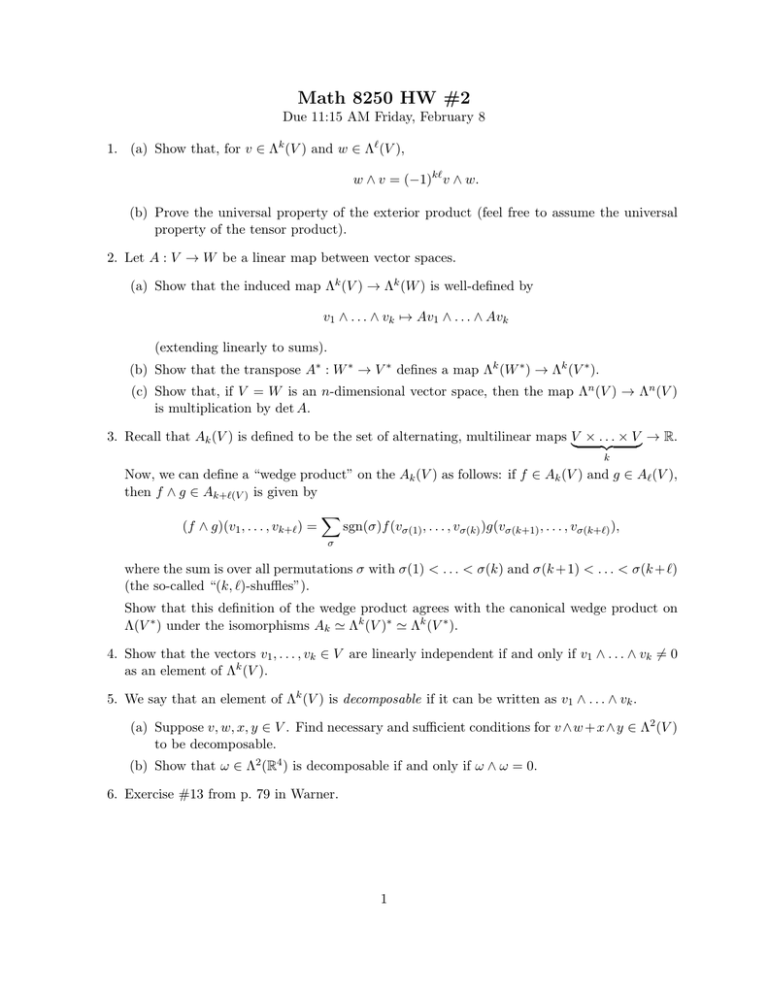
Math 8250 HW #2
Due 11:15 AM Friday, February 8
1. (a) Show that, for v ∈ Λk (V ) and w ∈ Λ` (V ),
w ∧ v = (−1)k` v ∧ w.
(b) Prove the universal property of the exterior product (feel free to assume the universal
property of the tensor product).
2. Let A : V → W be a linear map between vector spaces.
(a) Show that the induced map Λk (V ) → Λk (W ) is well-defined by
v1 ∧ . . . ∧ vk 7→ Av1 ∧ . . . ∧ Avk
(extending linearly to sums).
(b) Show that the transpose A∗ : W ∗ → V ∗ defines a map Λk (W ∗ ) → Λk (V ∗ ).
(c) Show that, if V = W is an n-dimensional vector space, then the map Λn (V ) → Λn (V )
is multiplication by det A.
3. Recall that Ak (V ) is defined to be the set of alternating, multilinear maps V
. . × V} → R.
| × .{z
k
Now, we can define a “wedge product” on the Ak (V ) as follows: if f ∈ Ak (V ) and g ∈ A` (V ),
then f ∧ g ∈ Ak+`(V ) is given by
(f ∧ g)(v1 , . . . , vk+` ) =
X
sgn(σ)f (vσ(1) , . . . , vσ(k) )g(vσ(k+1) , . . . , vσ(k+`) ),
σ
where the sum is over all permutations σ with σ(1) < . . . < σ(k) and σ(k +1) < . . . < σ(k +`)
(the so-called “(k, `)-shuffles”).
Show that this definition of the wedge product agrees with the canonical wedge product on
Λ(V ∗ ) under the isomorphisms Ak ' Λk (V )∗ ' Λk (V ∗ ).
4. Show that the vectors v1 , . . . , vk ∈ V are linearly independent if and only if v1 ∧ . . . ∧ vk 6= 0
as an element of Λk (V ).
5. We say that an element of Λk (V ) is decomposable if it can be written as v1 ∧ . . . ∧ vk .
(a) Suppose v, w, x, y ∈ V . Find necessary and sufficient conditions for v ∧ w + x ∧ y ∈ Λ2 (V )
to be decomposable.
(b) Show that ω ∈ Λ2 (R4 ) is decomposable if and only if ω ∧ ω = 0.
6. Exercise #13 from p. 79 in Warner.
1
